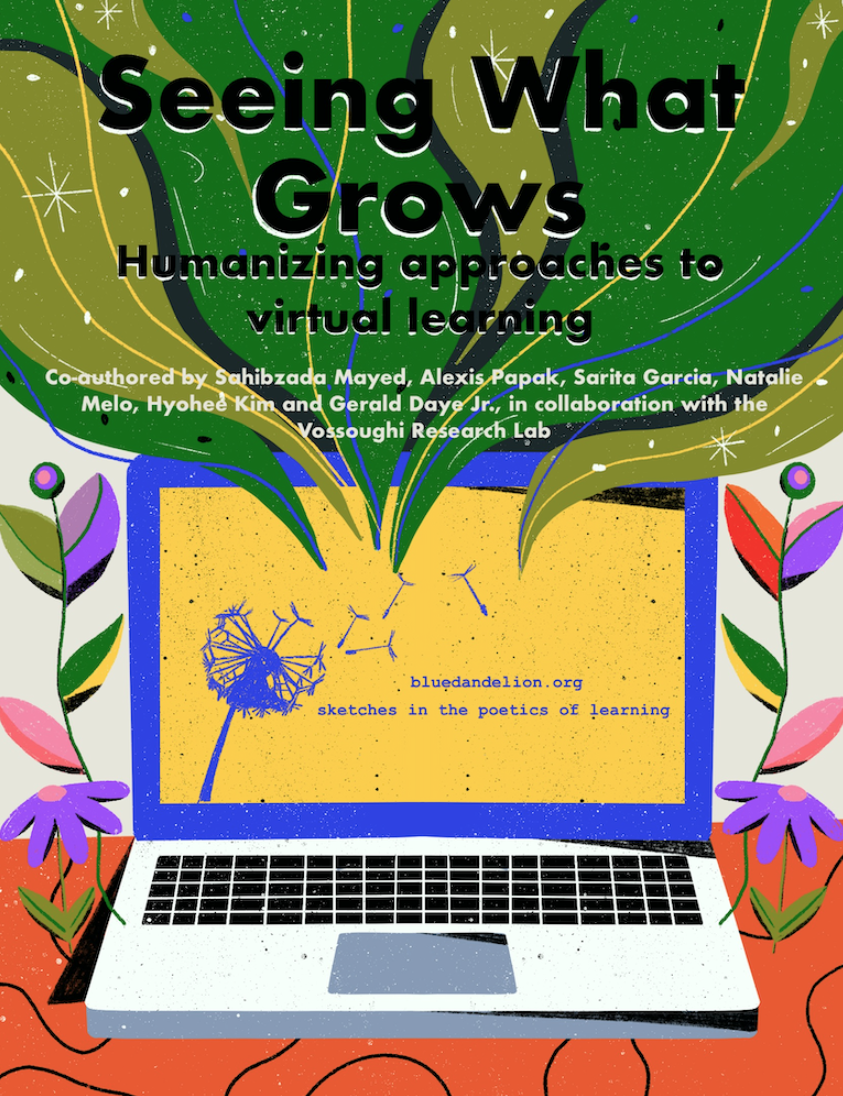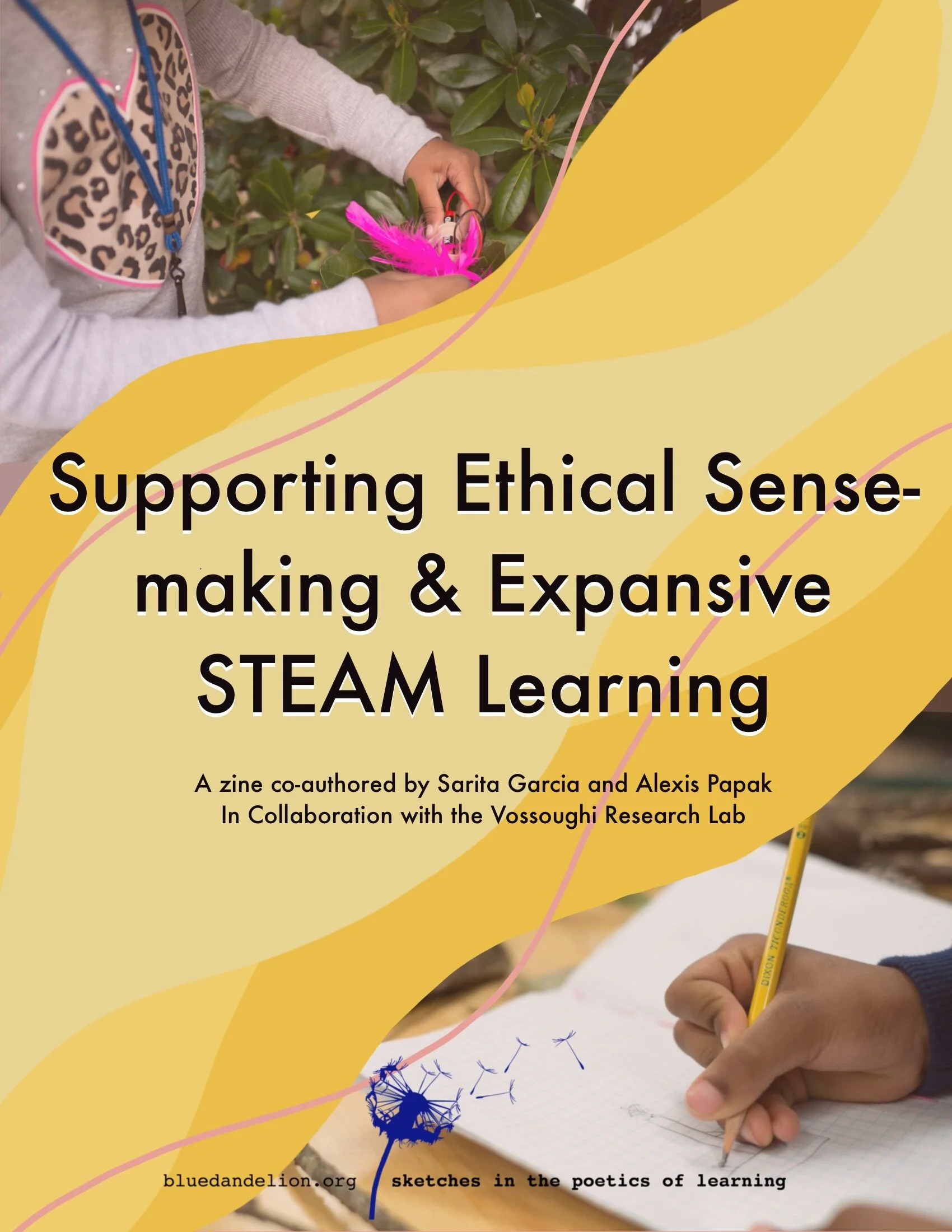What are pedagogical zines? Pedagogical zines blend collaborative research and art to create public resources for just educational practice. Designed by and for educators working to sustain the dignity, imagination and collective well-being of children, youth, and families, the zines are meant to be living artifacts. We want you to feel like you can mark up, use and revise them to make beautiful life and learning with others. We also hope their different styles invite you to imagine your own pedagogical zines.
The educators, artists and researchers who co-created the original set of zines include: Gerald Daye Jr., Meg Escudé, Sarita Garcia, Silvia Inés Gonzalez, Stephanie Jones, Hyohee Kim, Sahibzada Mayed, Natalie Melo, Allen Moore, Shai Moore, Arturo Muñoz, Alexis Papak, Shirin Vossoughi and Michael Zang. Since then the work has expanded to include zines and public-facing reports co-authored with a wider group of teachers and artists.
What are some of the values that shape our thinking? We understand teaching and learning as historical, cultural, social, political and ethical practices. Learning environments often enclose possibility and reproduce harm by furthering projects of white supremacy, settler-colonialism, racial capitalism, cisheteropatriarchy, human supremacy and ableism. Learning environments can also build social and intellectual relationships that cultivate otherwise worlds and forms of healthful life. These potentialities are abundant, and live in the ways we listen, talk, think, move, relate and collaborate in moment to moment interaction.
So the details of what we say and do in the smallest moments matter. They shape our experiences of reading and writing, science, math, technology, making and art, our relationships with one another, with learning, with ourselves and the wider world. Our zines share what we have learned about generative educational interactions through closely studying the possibilities and challenges in our own pedagogical practice and research. We hope our reflections are useful more broadly and help to elevate the everyday work of educators in and out of school.
Michael Zang taught us that “zines are built to make people think of themselves as artists.” In that spirit, our stories invite a view of pedagogy as poetry, and learning as a deeply social and creative activity.
Click on the images below to check out the zines ~







